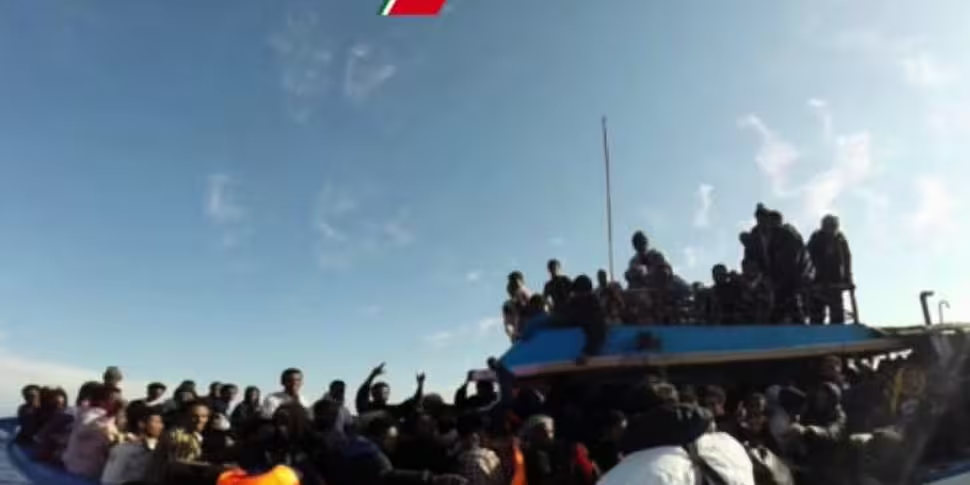Italian police have arrested 15 migrants for allegedly throwing others overboard following a shipwreck in the Mediterranean.
The Italian coast guard has said migrants have been arriving at an unprecedented rate since Friday, with 10,000 pulled from rickety vessels at sea and another 400 people drowned off Libya.
Police say the African Muslim migrants were held after witnesses said they had thrown 12 Christian passengers into the sea after a brawl on a boat heading to Italy.
One of the thousands of migrants rescued from the Mediterranean in recent days has told Sky News of his relief at finally reaching Europe after months of travel.
"It's like jumping from fire onto beautiful dry land," Ebrima Jaiteh said after landing in the Sicilian port of Trapani.
Mr Jaiteh, who said he plans to stay in Italy, learn the language and find work, said he was smiling for the first time in a year after completing the arduous journey
"The journey was hell," he said. "I have been travelling non-stop for months, through many dangerous countries.
"In Tripoli they treated us like animals. They beat us. They shouted at us. They took all our money.
"No human being should have to go through this. I thank God we made it. Many of my friends in different boats did not."
"I am alive. Right now, that is all that matters. Many thousands more like me will come. I know they will because I travelled with them to Libya, where they wait for calm seas."
Italy has pleaded for held from the other nations of the European Union to deal with the situation with many of the migrants, unlike Mr Jaiteh, not planning to stay in the country but move elsewhere across the continent.
Foreign Minister Paolo Gentiloni said: "90% of the cost of the patrol and sea rescue operations are falling on our shoulders, and we have not had an adequate response from the EU."
He told the Corriere della Sera newspaper that the EU was only contributing €3m a month on the Operation Triton sea patrols.
"And then there is the difficult issue of knowing where to send those rescued at sea - to the nearest port? To the country where their boat came from? The EU has to respond clearly to these questions," Mr Gentiloni said.
Under international law, the nearest vessel to an emergency must try to help those in danger, usually this falls to civilian ships such as ferries and cargo ships or the coast guard.
The European border agency vessels and aircraft in the area monitor the borders rather than save lives.
Mr Gentoloni also suggested that the EU had to tackle the reasons why people were leaving their homes in "Syria, the Horn of Africa and central Africa, to come to Europe in order address the problem.









